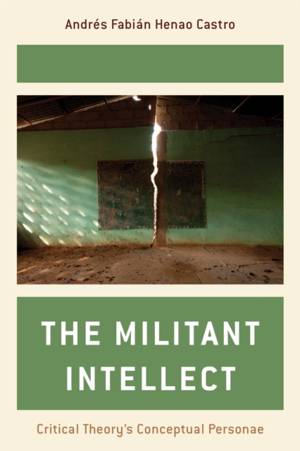
- Retrait gratuit dans votre magasin Club
- 7.000.000 titres dans notre catalogue
- Payer en toute sécurité
- Toujours un magasin près de chez vous
- Retrait gratuit dans votre magasin Club
- 7.000.000 titres dans notre catalogue
- Payer en toute sécurité
- Toujours un magasin près de chez vous
The Militant Intellect
Critical Theory's Conceptual Personae
Andrés Fabián Henao CastroDescription
The Militant Intellect offers a way of rethinking the relationship between critical theory and politics. How does critical theory become self-conscious of its own relation to politics? How does it contribute to change the world through its reinterpretation of it? These are some of the questions that drive The Militant Intellect.
In this book Andrés Fabián Henao Castro argues that critical theory cultivates the militancy of the general intellect by training that intellect to work towards the intersectional and structural death of the colonist and thus to envision at the same time the materialization of that feminist decolonial communist queer marronage world that constitutes its horizon. Henao Castro borrows and expands on Gilles Deleuze and Félix Guattari's idea of conceptual persona to qualify the intellectual labor of critical theory as an undisciplined field, that performs its labor through the creation of conceptual personae capable of subjectivizing critical thought. Doing so, The Militant Intellect argues for the indispensable reinterpretation of Plato's Philosopher Sovereign, Karl Marx's Communist, Frantz Fanon's Rebel, Jacques Derrida's Specter, Gayatri Spivak's Subaltern, Saidiya Hartman's Wayward Life, Jacques Rancière's Ignorant Schoolmaster, Judith Butler's Antigone/Ismene, and Jordy Rosenberg's Fox as compelling personifications of intellectual militancy for the general intellect to have new scripts capable of cultivating the virtuosity of its more revolutionary performances.
Spécifications
Parties prenantes
- Auteur(s) :
- Editeur:
Contenu
- Nombre de pages :
- 270
- Langue:
- Anglais
Caractéristiques
- EAN:
- 9781538145098
- Date de parution :
- 03-10-22
- Format:
- Livre relié
- Format numérique:
- Genaaid
- Dimensions :
- 152 mm x 229 mm
- Poids :
- 566 g







